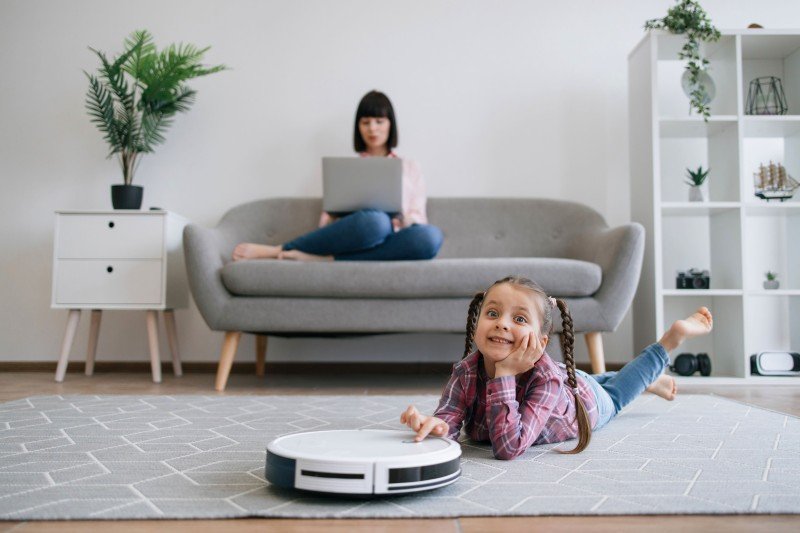Robotic Vacuum Cleaner Comparison: The Future of Home Cleaning
Over the last few years, robotic vacuum have changed the way we keep tidiness in our homes. With improvements in innovation and the incorporation of expert system, these devices have actually developed from simple novelty products to necessary household devices. This short article offers a comprehensive comparison of some of the leading robotic vacuum cleaners on the market, assisting consumers make notified decisions when selecting a model that matches their needs.
Comprehending Robotic Vacuum Cleaners
Robotic vacuum are self-governing makers designed to clean floors immediately. Geared up with sensors, they navigate around barriers and adjust their cleaning paths for maximum efficiency. The essential features that separate numerous designs include suction power, battery life, app connectivity, navigation innovation, and price.
Secret Features to Consider
When comparing robotic vacuum cleaners, prospective buyers need to take into account the following aspects:
- Suction Power: Measured in Pascals (Pa), suction power determines the efficiency of selecting up dirt and particles.
- Battery Life: The length of time a vacuum can run before requiring a recharge significantly affects its cleaning efficiency.
- Navigation Technology: Models might use easy random navigation or innovative mapping innovations (like LIDAR) that enable them to develop a map of the home.
- Smart Features: Connectivity to mobile phone apps or smart home systems can improve functionality and control.
- Filter Type: HEPA filters are recommended for allergy victims, as they trap irritants and enhance air quality.
Comparison of Top Robotic Vacuum Cleaners
Below is a comparison table of a few of the very best robot vacuum deals robotic vacuum cleaners offered in 2023:
| Model | Suction Power (Pa) | Battery Life (min) | Navigation Technology | Smart Features | Price (GBP) |
|---|---|---|---|---|---|
| iRobot Roomba i7+ | 1700 | 75 | Smart mapping | App control, voice command | ₤ 949 |
| Roborock S7 | 2500 | 180 | LIDAR | App control, multi-floor | ₤ 649 |
| Neato D7 | 2000 | 120 | LIDAR | App control, zone cleaning | ₤ 599 |
| Ecovacs Deebot T10 | 3000 | 150 | Smart mapping | App control, space detection | ₤ 799 |
| Shark IQ Robot | 1200 | 90 | Random | App control, self-emptying | ₤ 399 |
Description of the Table
iRobot Roomba i7+: Known for its robust cleaning ability, it includes smart vacuum cleaner mapping innovation that allows it to designate particular areas for cleaning. Its self-emptying feature is a plus for benefit.
Roborock S7: This design masters suction power and battery life, making it ideal for larger homes. Its LIDAR innovation helps produce an efficient cleaning path, and it can vacuum and mop all at once.
Neato D7: The D-shape design permits better corner cleaning, and it features strong suction power. Its LIDAR navigation allows it to map out cleaning locations properly.
Ecovacs Deebot T10: Boasting the highest suction power and advanced navigation, this model can manage multiple floors efficiently. It's a flexible choice for homes with differing floor types.
Shark IQ Robot: A budget-friendly alternative that still offers smart features. Its self-emptying capability and app integration make it a useful choice for those searching for a solid cleaning buddy without breaking the bank.
Advantages of Robotic Vacuum Cleaners
Robotic vacuum offer various benefits that contribute to their increasing popularity amongst customers:
- Time-Saving: Automated cleaning allows users to maximize important time that can be spent on other activities.
- Convenience: Many models can be arranged by means of apps to clean up at particular times, decreasing manual effort.
- Accessibility: They can reach under furnishings and in tight spaces where standard vacuums may struggle.
- Daily Maintenance: Regular use of robotic floor vacuums vacuums can assist maintain a regularly clean environment, promoting better general home hygiene.
Frequently Asked Questions About Robotic Vacuum Cleaners
1. How frequently should I run my robotic vacuum?
It is advised to run the robotic vacuum at least 2-3 times a week to maintain tidiness, though daily use can be beneficial, particularly in homes with pets or high foot traffic.

2. Do robotic vacuums work on carpets?
Yes, numerous robotic vacuums are created to deal with carpets, but efficiency may differ based on the model's suction power and brush type. Search for models specifically discussed as effective for carpets.

3. Can robotic vacuums clean animal hair?
A lot of robotic vacuums can effectively pick up pet hair, however those with strong suction and tangle-free brush styles are especially well-suited for this task.
4. How do I keep my robotic vacuum?
Regular upkeep includes cleaning the brushes and sensing units, emptying the dustbin, and periodically replacing filters to guarantee optimal performance.
5. Are robotic vacuums worth the investment?
While they tend to be more costly than standard vacuums, the convenience, efficiency, and time-saving elements make them a worthwhile investment for many homes.
The market for robotic vacuum continues to expand as technology progresses, using customers a range of options to fit different cleaning requirements and budget plans. By carefully considering features such as suction power, battery life, and smart abilities, users can pick a model that aligns with their way of life. Whether for benefit, ease of usage, or remarkable cleaning performance, robotic vacuums are undoubtedly reshaping the future of home cleaning.










